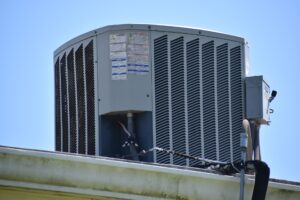 You can’t afford to have a malfunctioning AC, especially in summer or winter. If your cooling and heating unit breaks down in the middle of a hot or cold season, you may want for days for a specialist to come and fix it. Fortunately, you can diagnose and repair some hitches on your AC without having to rely on an HVAC professional service. This article offers some troubleshooting tips that will help you keep your AC running without a snag.
You can’t afford to have a malfunctioning AC, especially in summer or winter. If your cooling and heating unit breaks down in the middle of a hot or cold season, you may want for days for a specialist to come and fix it. Fortunately, you can diagnose and repair some hitches on your AC without having to rely on an HVAC professional service. This article offers some troubleshooting tips that will help you keep your AC running without a snag.
Are You Experiencing Uneven Cooling or Reduced Airflow?
If you are experiencing uneven cooling or reduced airflow, it is advisable to check your air filters. Dirty air filters can accelerate the wear and tear of your system. Air filters are the gatekeepers of your AC because they trap debris, dust, and other allergens, maintaining a cleaner air space. They also shield your unit’s furnace. When dirt or wreckages clogs your air filters, they may obstruct airflow into your system, reducing your unit’s efficiency levels. It can also result in the tripping of your circuit breaker or fuses. If you notice uneven cooling or reduced airflow, you should check whether your filters are blocked or not. Ensure you clean or replace them more often to prevent such problems.
Your AC Not Turning On
Wrong thermostat settings can affect your AC’s workings. Check your thermostat selector switch to be sure it is set appropriately. Ensure it is set higher than the room’s temperature for heating effects and below room temperature for cooling effects. Any variance may cause your unit not to turn on. Examine your thermostat display to check if it is powered. If not, it is advisable to replace the batteries. With a tripped circuit breaker or blown out fuse, your unit won’t startup. You may also need to check your home’s power supply. If the power supply is ineffective, your AC will not turn on. To fix such issues, turn on the circuit breaker or replace the fuse. If you have been experiencing a power outage in your home, contact your electricity provider to address the issue.
Your AC Won’t Cool as Required
If you experience this problem in your home, it is advisable to confirm if the vents in every room of your house are open. A closed vent can cause your home not to cool as expected. This is because the room with a closed vent will have warm air, which mixes with the cooled air from rooms with open vents, causing instability in your home. A leaking refrigerant line can also impact your AC’s cooling abilities. This issue may require professional attention. Moreover, improper installations are also a culprit for inefficiencies in AC cooling. If your home is fitted with the wrong system, too small, or too large, you will face cooling issues. A huge system will have a faster on and off-cycle, translating to reduced efficiency. A small system will have to overstretch, resulting in a premature breakdown. Get an expert to analyze your home’s needs and design the right system for you.
Your AC won’t Stop Running
A system that is too old or wrongly sized will be compelled to work harder or cycle faster than expected, which may cause challenges when shutting it off. A dirty filter can also prompt your AC not to turn off. It is advisable to inspect your air filters and clean them. Also, you should examine the coils on the outdoor unit and ensure they are clean. Subsequently, make sure all vents are open, and your unit’s ductwork is well-fastened. If coils, air filters, and vents are in good shape, the issue may be a malfunctioning compressor. Several hitches may lead to compressor failure, such as:
- Electrical problems
- Inadequate lubrication
- Obstruction of suction lines
As a homeowner, it is advisable to hire a competent professional to address compressor failure issues.
Noisy Unit

Usual noise from your AC is an indication that your unit is not functioning as expected. A constant clicking noise is a sign that your thermostat may be faulty or about to fail. Snubbing your unit’s abnormal sounds will lead to a major breakdown in the long run. Squealing sounds indicate a misaligned or worn out belt. It can also mean your system’s fan motors or blower wheels are faulty. Grinding sounds is a sign you have a problem with your unit’s motor bearings. Popping and pinging noises should prompt you to check your ductwork for loose metal. Loose cover panels lead to rattling sounds. It is important to tighten them to eliminate this problem. Banging sounds may mean it’s time to replace your compressor. Such noises will occur when there is a broken or loose part in your compressor. Screeching noises may mean you have a refrigerant leak. It is imperative to turn off your system and contact your AC repair service. Such leaks are detrimental to your health and can harm your AC.
AC Leaking Water
Inside Leaks
This occurs when your unit’s condensate drain lines are clogged. Ensure you turn off your air conditioner to help you eliminate this problem. Use a dry or wet vacuum to unblock the clogged line. If the problem persists, contact a technician to examine your condensate pump and drain pan.
Outside Leaks
Little splashes of water under your condenser unit are expected, especially in hot and humid temperatures. It is also normal for your unit to leak water in cold weather. Any other leaks may mean you clean or replace your unit’s air filters. If that does not address the leaks, call your professional maintenance expert for assistance. Your system condensate pan may be broken, or your AC might need more refrigerant. An HVAC professional will fix these issues and get your system back to its original condition. As a homeowner, you should be ready to fix some of these problems if you want comfort in your house. You don’t have to contact an expert every time you have issues with your air conditioner. It is imperative to handle these repairs as soon as you spot an issue. However, if your unit develops problems that are beyond your capabilities, it is advisable to hire a competent technician to fix the problems.
